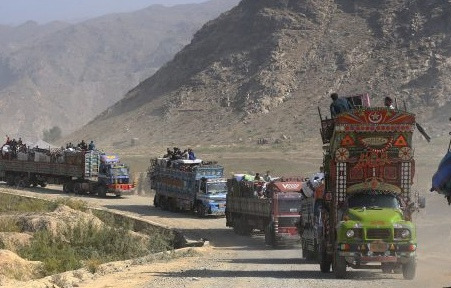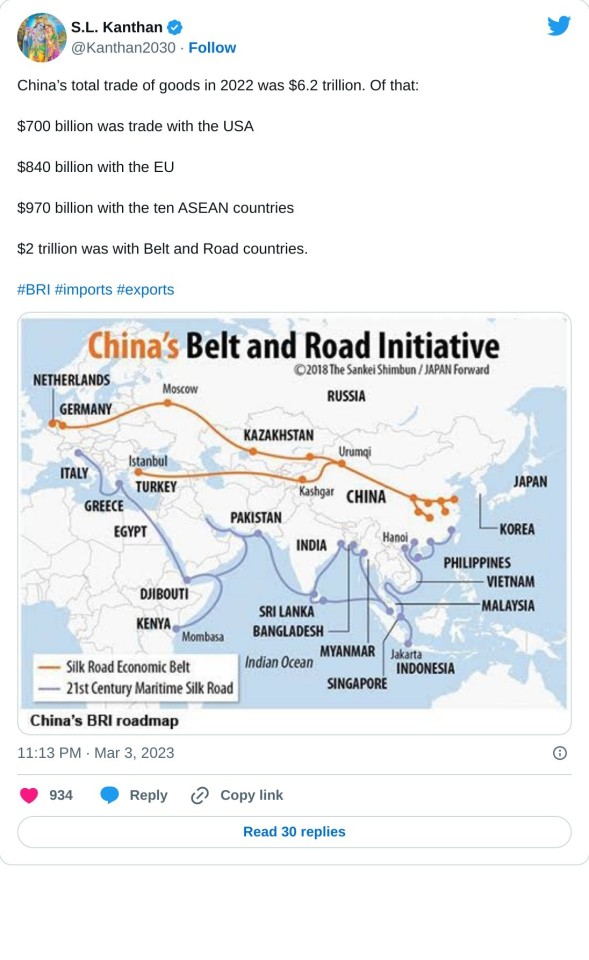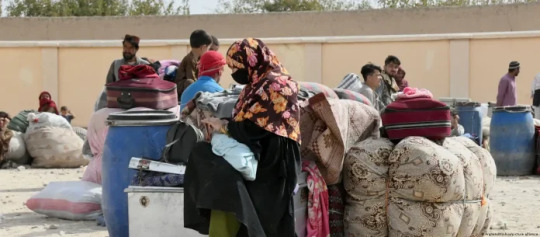#Pakistan pakistan world not news
Text
#संतरामपालजी_का_अयोध्याभंडारा
श्रीराम जन्मभूमि अयोध्या में संत रामपाल जी महाराज के पावन सानिध्य में सतलोक आश्रम द्वारा अलौकिक भंडारे का आयोजन किया जा रहा है।।

#santrampalji is trueguru#kabir is supreme god#sant rampalji maharaj app#kabir is real god#india#america#right way of worship#kabirgod#australia#supremegod#american#russian#indian cricket team#uttarpradesh#pakistan#new york#england#viral#english#world#worldwide
62 notes
·
View notes
Text
Maybe I shouldn't be surprised but there are so many things like this happening around the world and our western media just straight up completely ignores it I'm???
Link
59 notes
·
View notes
Text
Congratulations to all the teams for defeating the colonisers at their own game.

#cricket world cup 2023#cricket#indian cricket team#cwc23#cwc 2023#india#new zealand cricket#south africa#australia#Pakistan#afghanistan#netherlands#bangladesh#sri lanka#england#england cricket#afghanistan cricket#cricket world cup#colonialism#colonisers#colonizers#english cricket#a heartiest#fuck you#bcci#iccworldcup#icc#virat kohli#desi#desiblr
133 notes
·
View notes
Text
Does this löök familiar? Clear your calendar, grab your popcorn and buckle up. 🤔
#pay attention#educate yourselves#educate yourself#knowledge is power#reeducate yourself#reeducate yourselves#think about it#think for yourselves#think for yourself#do your homework#do some research#do your own research#ask yourself questions#question everything#news#world news#election fraud#voter fraud#pakistan
29 notes
·
View notes
Text
🇵🇰 🚨
INTERFERENCE AT THE POLLS RECORDED BY PAKISTANI VOTERS IN 2024 GENERAL ELECTION
📹 Scenes of interference by the Pakistani military in Thursday's contentious Pakistan General Elections to intimidate PTI supporters out of voting for their preferred candidates.
Protests have since broken out across Pakistan as PTI supports hit the streets to demand an end to the persecution of Imran Khan and his PTI party.
#source
@WorkerSolidarityNews
#pakistan#pakistan elections#pakistan news#pakistan politics#politics#news#geopolitics#world news#global news#international news#breaking news#current events#voter intimidation#imran khan#pti#elections
17 notes
·
View notes
Text
Afghans flee Pakistan en masse: “We’d live here our whole life if they didn’t send us back”
Pakistan is set to begin forcibly removing 1.7 million migrants, many of them Afghans who fled the Taliban, Sky News reports.
Thousands of Afghans are fleeing Pakistan ahead of the government’s Wednesday deadline for undocumented or unregistered foreign nationals to leave the country.
Last month, Pakistan’s interim government threatened to round up, detain and deport those who do not leave the country voluntarily. Islamabad blames Afghan migrants for a surge in armed attacks, mainly in the northwestern province of Khyber Pakhtunkhwa and the southwestern province of Balochistan on the border with Afghanistan.
Learn more HERE

#world news#world politics#news#pakistan news#pakistan#taliban#afganistan#afghan refugees#afghan women#afghanistan
20 notes
·
View notes
Text
It just breaks and pisses me off that things like the Greek migrant crisis are so preventible.
They were fleeing their countries because of the absolute mess the encomy had become.
Trying to meet with their relatives in Europe.
As of June 19th, the death toll is 81 and the people in charge are looking to be facing manslaughter charges.
Though this hasn't be confirmed.
The fact Pakistan issued Monday as a national day if mourning is both heartbreaking but also gestures your part of the problem my dudes.
Don't just give thoughts and prayers, do something.
Also this boat was a fishing boat and started off in Libya and was attempting to get to Italy.
Which is quite the journey.
Greek authorities are like well as tried to help but they didn't want it.
While an advocacy group are like no... No they did, they alerted you guys 2 days before shit went down.
Just seeing the accounts of the survivers reuniting with family like 😭🥺I'm glad their were survivors.
Though not a high amount.
Many are still unaccountated for.
And the story gets more fucked up because guess who organised the damn thing.
Members of a human trafficking ring.
I wish I was making this up.
It's said people paid those incharge anywhere from between $5000 to $8000 to be taken to Europe in hopes of a better life.
Vulnerable people being taken advantage of.
And the boat conditions, survivors described being denied food or water and those who failed to bribe the crew were beaten.
Arrests are being made but I just hope the core issue if why these people were so desperate to take this opportunity isn't lost.
I know the titanic submerine event has people's attebtion right now but it's crucial this story is heard.
#Greek migrant tragedy#Greece#Syria#pakistan news#World news#Migrants#human trafficking#titanic submarine
44 notes
·
View notes
Text

#christian quotes#christians#christianity#verse of the day#bible verse#bible#jesus#christian inspiration#fox news#breaking news#world news#pakistan news#india news#says expert#jesus loves us#jesusitrustinyou#jesusisgod#jesusislord#jesusteama#christ#jesus christ#christian#faith
55 notes
·
View notes
Text
In their February paper, “US Dollar Primacy in an Age of Economic Warfare,” presented at the West Point Symposium on “Order, Counter-Order, Disorder” Michael Kao and Michael St. Pierre argue for using a stronger US dollar as geopolitical leverage:
Not only are the effects of interest rates hikes magnified in other countries due to a myriad of structural and idiosyncratic economic fragilities previously discussed, the confluence of wide USD adoption with cyclical USD strength … make the USD a potent geopolitical lever masquerading as a domestic fight against inflation. National Power lends the USD dominance in adoption, while an opportunistic fight against inflation lends the USD cyclical strength for geopolitical leverage.
The US and US-led institutions are already trying to sideline China in countries struggling to make debt payments. And these efforts are likely to continue as interest rates rise and more countries in the Global South are unable to repay loans. A recent UNDP paper stated that 52 developing countries are suffering from severe debt problems.
China is the world’s largest bilateral creditor, and this is especially true for countries that are part of Beijing’s Belt and Road Initiative and/or for countries that possess strategically important natural resources. Washington estimates that Chinese lending ranges from $350 billion to a trillion dollars.
In recent years, western officials and media have ratcheted up criticism of China’s lending practices, claiming Beijing is putting its boot on the neck of countries, holding back their development, and is seizing assets offered as collateral.
Deborah Bräutigam, the Director of the China Africa Research Initiative at the Paul H. Nitze School of Advanced International Studies, has written that this is “ a lie, and a powerful one.” She wrote, “our research shows that Chinese banks are willing to restructure the terms of existing loans and have never actually seized an asset from any country.”
Even researchers at Chatham House admit there’s nothing nefarious about China’s lending, explaining that it has instead created a debt trap for China. That is becoming more evident as nations are unable to repay, largely due to the economic fallout from the pandemic, the Nato proxy war against Russia in Ukraine, inflation, and rising interest rates.
These confluence of events hitting developing countries are entangling China in multilateral talks that include US-backed institutions like the IMF. Beijing’s preference has always been to try and tackle debt repayment issues at a bilateral level, typically by extending maturities rather than accepting write-downs on loans.
But US Treasury Secretary Janet Yellen and company continue to parrot the talking point that China’s lending is harming countries, and in countries unable to repay their international debts, the West and China are increasingly at odds.
Back in 2020, the G-20 countries created the Common Framework for Debt Treatments to provide relief to indebted countries, which included “fair burden sharing” among all creditors. Beijing’s reluctance to agree to such burden sharing is illustrated by the case of Zambia.
Zambia became the first African country to default on some of its dollar-denominated bonds during the Covid-19 pandemic when it failed to make a $42.5 million bond payment in November 2020.
More than a third of the country’s $17 billion in debt is owed to Chinese lenders. Zambia worked out a deal with the IMF for a $1.3 billion bailout package but can’t access the relief until its underlying debt is restructured – including Chinese debts. But the IMF prescription for Zambia is a blow to Beijing. Here are some details of the arrangement from The Diplomat:
Zambia will shift its spending priorities from investment in public infrastructure – typically financed by Chinese stakeholders – to recurrent expenditures. Specifically, Zambia has announced it will totally cancel 12 planned projects, half of which were due to be financed by China EXIM Bank, alongside one by ICBC for a university and another by Jiangxi Corporation for a dual highway from the capital. The government has also canceled 20 undistributed loan balances – some of which were for the new projects but others for existing projects. While such cancellations are not unusual on Zambia’s part, Chinese partners account for the main bulk of these loans…
While some of these cancellations may have been initiated by Chinese lenders themselves, especially those in arrears, Zambia may not have needed to cancel so many projects. Since 2000, China has canceled more of Zambia’s bilateral debt than any sovereign creditor, standing at $259 million to date.
Nevertheless, the IMF team justified the shift because they – and presumably Zambia’s government – believe that spending on public infrastructure in Zambia has not returned sufficient economic growth or fiscal revenues. However, no evidence is presented for this in the IMF’s report.
Zambia will also cut fuel and agriculture subsidies. So instead of infrastructure investment and social spending, the country gets austerity. The IMF deal also relegates China to the backseat, as it allows for 62 concessional loan projects to continue, only two of which will involve China. The vast majority of the projects will be administered by multilateral institutions and involve recurrent expenditure rather than infrastructure-focused projects.
Despite all the evidence to the contrary, Yellen on a trip to Zambia in February warned that Chinese lending “can leave countries with a legacy of debt, diverted resources, and environmental destruction” and called out Beijing for being a “barrier” to ending the major copper producer’s debt crisis and noted that it had “taken far too long already to resolve.”
The US effort to sideline China in Zambia comes at the same time that Washington is trying to tighten control over resources in the region. Note that back in December the US signed deals with the Democratic Republic of Congo and Zambia (the world’s sixth-largest copper producer and second-largest cobalt producer in Africa) that will see the US support the two countries in developing an electric vehicle value chain.
Beijing is insisting that multilateral lenders also accept haircuts on loans rather than just China being expected to do so. This is a position that most debtor nations agree with. On the other side, the IMF and its partners are worried that its bailout money would merely go to Chinese creditors – many of which are state banks that are increasingly troubled by bad debts.
Gong Chen, founder of Beijing-based think tank Anbound, says that if countries are unwilling or unable to repay their debts to China, it would be devastating:
Widespread debt evasion and avoidance would have a significant impact on China’s financial stability,” he said, “and we are concerned that some countries may try to avoid paying back their debt by utilizing geopolitics and the ideological competition between East and West.
Yellen and company tried to apply more pressure on Beijing at the recent G20 meeting of finance officials in India, but that fell flat on its face much like the West’s efforts to hijack the meeting and turn it into a roundtable on Russian sanctions.
Meanwhile, Zambia has halted work on several Chinese-funded infrastructure projects, including the Lusaka-Ndola road, and canceled undisbursed loans in line with the IMF prescription for its debt problem.
Chinese companies are now attempting to work around these roadblocks by shifting more toward public-private partnerships. For example, a Chinese consortium is now planning to build a $650 million toll road from the Zambian capital to the mineral-rich Copperbelt province and the border with the Democratic Republic of the Congo.
The situation in Zambia does not bode well for other nations needing debt relief, as the delays while the West and China clash mean more pressure on government finances, companies and populations.
And if the West’s primary goal in offering debt relief is to sideline Beijing, as it appeared in Zambia, then that will mean a drastic scaling back of infrastructure projects replaced by austerity. From Sovdebt Oddities:
More broadly, as noted by Mark Sobel, the current international financial architecture is ill-equiped to deal with a major recalcitrant creditor benefiting from outsized (geo)political leverage. While it remains illusional to insulate sovereign restructurings from geopolitical considerations, there is a risk that they would turn into a game of chicken between China on the one hand and the IMF and Paris Club on the other hand. The problem being that if none of the players yields, it will just mean more economic and social hardship for the debtor country stuck in the middle.
Sure enough, the same situation is playing out in two nations that are key points on China’s Belt and Road project: Pakistan and Sri Lanka.

Here is Islamabad’s debt situation, courtesy of Pakistani economist Murtaza Syed at The International News:
For each of the next five years, Pakistan owes the world $25 billion in principal repayments. It will also need at least $10 billion to finance the current account deficit, bringing total external financing needs to $35 billion a year between now and 2027. We have foreign exchange reserves of just $3 billion. For each of the next five years, the government needs to pay 5 percent of GDP to service the debt it owes to residents and foreigners. Our total tax take is only 10 percent of GDP.
Around fourth-fifths of this external debt is owed to the official sector, split roughly evenly between multilaterals (like the IMF, World Bank and ADB) and bilaterals (countries like China, Saudi Arabia and the United States). The remaining one-fifth is commercial, again roughly evenly split between Eurobond/Sukuk issuances and borrowing from Chinese and Middle Eastern banks. By region, we owe roughly one-third of our external debt to China and 10 percent to the old-boys network of the Paris Club, which includes Europe and the US.
Additionally, last year, the Pakistan rupee plunged nearly 30 percent compared to the US dollar. All indications are that the IMF is using bailout negotiations to pressure Pakistan to move away from China and revive its partnership with the US. Some background from WSWS:
Former prime minister Imran Khan’s government was promptly removed in April 2022 after he reversed IMF-demanded subsidy cuts in the face of country-wide protests. Khan had previously implemented two rounds of some of the toughest austerity in the country’s history. In the final year of his government, Khan shifted the country’s foreign policy towards a closer alliance with Russia and deepened ties with China, prompting concern and anger in Washington.
Sharif’s Muslim League (PML-N) and the People’s Party (PPP) assumed power in a coalition with the approval of the military, long the most powerful political actor in the country and the linchpin of the alliance between the Pakistani bourgeoisie and US imperialism. The express aim of the new government was to implement IMF austerity, which it has done.
The IMF-prescribed austerity imposed by Pakistani elites also targets Beijing. China is Pakistan’s largest single creditor as the country is perhaps the most important country in China’s Belt and Road plans because it would provide China with a potential corridor to the seaport at Gwadar on the Indian Ocean. The supply line would reduce the distance between China and the Middle East by thousands of miles via insecure sea lanes to a shorter and more secure distance by land. Beijing’s spending in Pakistan reflects this, as the $53 billion China has spent on the Belt and Road Initiative (BRI) in the country is tops of all BRI countries.
Yet many of the BRI plans are unrealized, and Pakistan’s current economic situation makes it unlikely they’ll be finished anytime soon. China has dramatically scaled back investment, which fits with its more cautious approach to BRI projects. Meanwhile, decades-high inflation, economic mismanagement, and last year’s biblical floods have led to Islamabad burning through its foreign exchange reserves in order to make debt payments. The US blames China.
“We have been very clear about our concerns not just here in Pakistan, but elsewhere all around the world about Chinese debt, or debt owed to China,” US State Department Counselor Derek Chollet told journalists at the US Embassy in Islamabad after he met with Pakistani officials in February.
Additionally, Cholett said Washington is warning Islamabad about the “perils” of a closer relationship with Beijing.
According to the Times of India, many Pakistani officials have come around to the US way of thinking and are also blaming the China-Pakistan Economic Corridor Project (CPEC), a $65 billion network of roads, railways, pipelines, and ports connecting China to the Arabian Sea, for worsening the country’s debt crisis. From Indian Express:
Pakistan expanded its electricity generation capacity under the China-Pakistan Economic Corridor Programme (CPEC) but the expansion came at a high cost both in terms of high returns guaranteed to the Chinese independent power producers (IPPs) and the expensive foreign currency debt. Pakistan has been unable to make the capacity payments to IPPs under the long-term power purchase agreements with the electricity sector debt rising to a staggering $ 8.5 billion.
Last December, the government agreed to repay this debt in installments. However, this may have displeased the IMF, which had expected the government, in August 2022, to renegotiate the purchase power agreements. Pakistan tried to renegotiate but the Chinese refused.
The IMF extended the current program on the condition that it would not go to the Chinese IPPs. More from Nikkei Asia:
Observers say Pakistan’s handling of the electricity issue is likely to irk China, noting that Sharif’s government committed to the IMF to reopen power contracts without taking the Chinese companies into confidence. Pakistan has also reneged on a promise to set up an escrow account to ensure smooth payments to Chinese IPPs.
The IMF is demanding that Pakistan rationalize payments to the Chinese IPPs in line with earlier concessions extracted from local private power producers…
The IMF now wants Pakistan to negotiate an increase in the duration of bank loans from 10 years to 20 years, or to reduce the markup on arrears owed to Chinese IPPs from 4.5% to 2%.
Notably, the IMF appears to have been less willing to make concessions than the previous 22 times Pakistan has sought its support since 1959. Oddly enough Beijing is pushing for a deal between Islamabad and the IMF, and China recently extended a $2 billion loan to Pakistan. From the Middle East Institute:
It is interesting to note, for example, that Chinese officials reportedly urged Islamabad to repair ties with the IMF — if true, an indication that Beijing regards resumption of the Fund’s lending program as key to mitigating Pakistan’s risk of default.
It is also revealing that Pakistan seems keener to take on new financing from China than China may be to furnish it. Even as the economy wobbles under a heavy debt burden and other acute challenges, Pakistani officials have sought support from China to upgrade the Main Line 1 (ML-1) railroad, a project which, if not undertaken, they claim could result in the breakdown of the entire railway system.Yet, the IMF wants Pakistan to rein in CPEC activity. And China’s own domestic economic challenges and priorities might make it hesitant to respond to Islamabad’s appeals. On the other hand, the ML-1 project might meet Beijing’s more exacting standards and increasing emphasis on “high quality” BRI infrastructure projects.
The recent rapprochement between Iran and Saudi Arabia could leave Pakistan out in the cold and even more reliant upon the US. From Andrew Korybko:
With the Kingdom likely to focus more on mutually beneficial Iranian investments than on dumping billions into seemingly never-ending Pakistani bailouts that haven’t ever brought it anything in return, Islamabad will predictably become more dependent on the US-controlled IMF. China will always provide the bare minimum required to keep Pakistan afloat in the worst-case scenario, but even it seems to be getting cold feet nowadays for a variety of reasons, thus meaning that US influence might further grow.
About that, last year’s post-modern coup restored American suzerainty over Pakistan to a large degree, which now makes that country a regional anomaly in the geopolitical sense considering the broader region’s drift away from that declining unipolar hegemon. The very fact that previously US-aligned Saudi Arabia patched up its seemingly irreconcilable problems with Iran as a result of Chinese mediation reinforces this factual observation. Pakistan now stands alone as the broader region’s only US vassal.
Pakistan is not only the most highly indebted to China of its BRI partners, but along with Sri Lanka, is also among the largest recipients of Chinese rescue lending. The ruling elite Pakistan is increasingly concerned that the social crisis could spiral out of control and result in something similar to what happened in Sri Lanka last year when a popular uprising toppled the government.
Due to haggling between the West and China, Sri Lanka has been waiting since September to finalize a bailout after a $2.9 billion September staff level IMF deal. And yet many of the recommendations in the agreement have already been implemented—to disastrous effect.
The country is dealing with its worst economic crisis since independence in 1948, including a shortage of reserves and essential items. In February, the IMF said Sri Lanka’s bailout package was set to be approved as soon as the country obtained adequate assurances from bilateral creditors, i.e., China.
Beijing now appears ready to meet more of the IMF’s demands, although details have yet to be released. In a letter in January, the Export-Import Bank of China offered a two-year debt moratorium, but the IMF said that wasn’t enough. According to Reuters, total Sri Lankan debt to Chinese lenders totals roughly 20 percent of the country’s total debt.
Sri Lanka is another focal point of the BRI due to its geographical position in the middle of the Indian Ocean. China’s goal was to transform the country into a transportation hub as much of its energy imports from the Middle East and mineral imports from Africa pass through Sri Lanka. Beijing has already achieved much of these goals. For example, in 2017 a 70 percent stake of the Hambantota port was leased to China Merchants Port Holdings Company Limited for 99 years for $1.12 billion.
The West blames China’s BRI initiative in Sri Lanka for saddling the country with unsustainable debt, but is that really the case? Political economists Devaka Gunawardena , Niyanthini Kadirgamar, and Ahilan Kadirgamar write at Phenomenal World:
The problems associated with the IMF’s policy package have been caught in geopolitical rhetoric. The US alleges that Sri Lanka is the victim of a Chinese debt trap. In fact, Sri Lanka is in an IMF trap. The structural consequences of over four decades of neoliberal policies have exploded into view with the receding welfare state, a ballooning import bill, and investment in infrastructure without returns, all of which relied on inflows of speculative capital. Framing Sri Lanka’s crisis within a narrative of geopolitical competition obscures the core dilemmas of the global economy. Will the evident breakdown force a reckoning with the present order, or will it be used as an excuse to inflict more suffering?
Thus far, it looks like the latter.
#economics#china#zambia#sri lanka#pakistan#international monetary fund#world bank#capitalism#belt and road initiative#new silk road#us imperialism#china-pakistan economic corridor program#chinese investment in africa
29 notes
·
View notes
Text

Advertisement for Pakistan International Airlines, 1979.
#advertisements#1979#pia#pakistan international airlines#world trade center#twin towers#new york city#nyc#pakistan#history#shadow#jetliner#plane#september 11#le point#ad campaign#black and white#bnw#illustration
2 notes
·
View notes
Text
what's going on in pakistan right now is unimaginable for many of us it's horrid and pakistanis are receiving negligible aid even when 30 million people are displaced fgs
#pakistan#pakistani#flooding#pakistan floods#monsoon#south asia#muslim#psa#signal boost#world news#humanitarian crisis#climate change
31 notes
·
View notes
Text
At least 55 people are dead and 135 more are injured in a suspected suicide bombing at a political rally in northwest Pakistan.
Details and more video:👇
#pay attention#educate yourselves#educate yourself#knowledge is power#reeducate yourself#reeducate yourselves#think for yourselves#think about it#think for yourself#do your homework#ask yourself questions#question everything#world news#news#pakistan
21 notes
·
View notes
Text
🇵🇰 🚨
PROTESTS AFTER INDEPENDENT CANDIDATES FORMERLY OF PTI, PARTY OF IMRAN KHAN, DEFEAT WESTERN-BACKED OPPONENTS
Despite the jailing of Imran Khan and the banning of his PTI (Pakistan Tehreek-e-insaf) Party, several independent candidates formerly of PTI won big in the 2024 Pakistan General Elections, held February 8th.
Pakistan has been in turmoil ever since Imran Khan, Prime Minister since August 2018, was ousted in a Lawfare coup by Western-backed opposition forces in the Pakistani government and military. Khan has since been detained on trumped-up charges, some of which include accusations of an illegal marriage to his third wife, whom he married in 2018 shortly before assuming office.
After Khan's ouster, PTI supporters protested en mass against the government, leading to several violent incidents which the government then used to strip the party of its symbols and prevent candidates from running under the party's banner. PTI candidates have since been forced to run as independents.
Several high-profile former members of PTI turned against Khan under pressure and were trounced in this week's elections, with several lesser-known ex-PTI members defeating the turncoats.
During the elections, which were held on Thursday February 8th, several reports of pressuring and ballot stuffing accusations emerged, with videos posted online showing interference at the polls.
Still, independent, PTI-backed candidates won at least 92 seats, which though not enough to form a government on its own, could make it a major player during negotiations to form a coalition, if not suppressed.
Any coalition will need 169 seats to support its bid before forming a new government, with the Western-backed Muslim League winning the most seats and most likely to form a governing coalition.
Delays in results and fears of a stalemate and further political turmoil has brought thousands of PTI and Khan supporters out into the streets to protest the government's attempts to eliminate PTI and Khan as a threat to the current elite faction governing the country.
#source1
#source2
#videosource
@WorkerSolidarityNews
#pakistan#pakistan news#pakistan politics#pakistan elections#pakistan general elections#elections#middle east#politics#news#geopolitics#world news#global news#international news#western asia#pakistani elections#pakistani politics#pakistani news#imran khan#pti#pretests#pakistan protests
14 notes
·
View notes
Text
Afghans leave Pakistan ahead of deadline
A huge number of Afghans headed to the Pakistani border to return home hours before a deadline set by the Pakistani government. Illegal residents must leave the country or face deportation,
The deadline is part of a new crackdown on migrants, according to Islamabad. However, the measure applies to Afghans, who comprise the majority of migrants in Pakistan.
Pakistani officials warn that people staying in the country illegally will face arrest and deportation from November 1. UN agencies say there are more than 2 million undocumented Afghans living in Pakistan, at least 600,000 of whom have fled since the Taliban took power in 2021.
The campaign comes amid strained relations between Pakistan and the Taliban rulers. Islamabad accuses Kabul of closing its eyes to militant Taliban allies who take refuge in Afghanistan to organise attacks in Pakistan. The Taliban denies the accusations.
Learn more HERE

#world news#world politics#news#afghanistan news#afghanistan#afghan refugees#pakistan news#pakistan#taliban
6 notes
·
View notes
Text
Reminder that the whole reason Pakistan is in the mess it is.
With Imran Khan being removed as prime minister.
And his subsequent imprisonment for 3 years after that.
And that whole mess.
... Is because of America.
Imran Khan was in support of a neutral policy in the Russia/Ukraine war.
The Russian invasion into Ukraine hadn't started and he expressed that "there was still hope for a peaceful solution to be reached."
And the US didn't like that.
In a secret diplomatic cable between the than Pakistani ambassador to America had with 2 state department officials from America.
One being Donald Lou who was not happy with Imran Khan.
'He said that "I think if the no- confidence vote against the prime minister succeeds, all will be forgiven in Washington because the Russia visit is being looked at as a decision by the Prime Minister. Otherwise, I think it will be tough going ahead."
So in other words, because Imran Khan had a different view point that he did, he was threathing Pakistan on the world's stage.
That if they didn't get rid of their leader, their leader who had been democratically elected by the Pakistani public.
Than they would suffer consequences.
... I'm sorry who the fuck put you in charge?!
And if you think oh it's just one guy.
"Don could not have conveyed such a thing without the express approval from the White House."
Aka the Biden Administration.
Which he expressed multiple times.
... I'm not suprised but my god does this piss me off.
Day after this, the no vote of confidence began in the Pakistani Parliament.
And Imran Khan was removed.
And imprisoned.
On some of the most flimsy ass charges I've ever heard.
However, shockingly... People who voted Imran Khan to be prime minister of Pakistan... Actually really liked the guy.
Imagine that.
And protests happened.
And the military, who was already corrupt got a power high from the situation and were arresting many of said supporters.
And Imran Khan might be free now but America has made sure that he can't run in the Pakistani elections.
No matter how popular and how much people want him in charge.
Don't get me wrong the military is definitely fucking shit up.
And their are others at fault.
Infact, Americas involvement was raised by Imran Khan in March 2022 (but this secret cable was only revealed today.)
He stated "a foreign power sent a message that he needs "to be removed" or Pakistan will face the consequences."
And incase you were wondering if it was America.
He the letter he received to be "a foreign conspiracy letter" and it's language was "threathing and arrogant."
But the damage was done.
And while no one else was helping this situation, it wouldn't have happened if not for the USA.
Because who the fuck gives you the right to threaten Pakistan because they wanted to stay neutral in a conflict that they weren't apart of.
Nor had even begun.
You destabilised their government, further corrupted the country and the military for your own gain with no remorse or regard for who it would affect.
You put the person who many feel is the one hope for Pakistan in jail and now he can't become leader.
If someone tried that with America, their government would lose their absolute shit.
We'd be called a dangerous foreign power.
But when you do it it's fine?
But your somehow allowed to dictate the way other countries are run? No offence but you can't run yourselves.
Nevermind Pakistan.
You have no right to do any of this.
You have shattered any peace in Pakistan.
Everyone who has died in the protests and riots is on your hands.
And because of that this news is probably being blocked in Pakistan.
Purposefully destabilise a south asian government and than fuck off like it never happened, who are you, the British?
And their denying it.
US State spokesperson Matthew Miller said "nothing in these purported comments show that the United States talking a position on who the leader of Pakistan should be."
Another spokesperson, Jalina Porter states "let me just say very bluntly, there is absolutely no truth to these allegations."
You fucking liars.
#Pakistan#pakistan news#Pakistani#I'm just so mad and so tired#America#news usa#american news#World news#us#usa#pakistan#pakistani#imran khan#Pakistani government#South asian#desi#desi tag#desiblr#desiblogger#desi stuff#desi tumblr#desi things#south asian#south asia#pakistan zindabad
16 notes
·
View notes
Text
.
#i need to stop doomscrolling its four in the morning im so exhausted i technically have school shit i needed to finish and i have to get up#to go to class in a few hours too#it helps nothing either. its horrible to look and its horrible to look away and they both do absolutely nothing past a point just like w th#other endless amount of absolutely horrible things going on in the world rn#theres no new information now either. just the fallout and seeing what comes next#this and no other horrible thing going on in the world is abt us and how it affects us emotionally obviously like that's just specs of dust#on the thing itself#but. yeah. i. i dont think the human mind copes well w going from locally based ape empathy to exposure to every horrible thing everywhere#....... russia has bombed more apartments and civilian buildings too :( ppl caught under the rubble and dead#just. dear god.. i just keep thinking that. i just keep saying that to myself. dear god#dear god oh lord of duamne ya allah yarabbi whatever variation its most of what goes through my mind on loop#while my mind runs through so much of it. palestina and all the videos of dead and murdered and the children the videos from last week of#that tourist girl in israel the war in ukraina whats happening in kosovo armenia the uyghurs and china all the conflict in india and#pakistan the state of afghanistan yamen civilians being tortured by gangs in south america torture in general and the prisons around the#world and the slavery and the torture and the killing and the starvation and the pain and the million other things going on i don't even#know about and the fucking climate jesus christ the climate change???#and my mind just doesnt stop. it goes through so much shit it maps out this horrible web of pain and pain and pain throughout the entire#world ;;_;;#i uh. i desperately need to take more time in my life and for years on end ive needed to tske more time in my life to think#of the good things happening in ths world too. small things big things anything just anything good anything getting better anything thats#working any proof of humanity in this species#i just. .#.#i go through the full range of human emotion from rage to numbness and dissociation to bitterness to shock to nothing shocks me to endless#sorrow to disgust and i end up at the end#feeling like the same kid who wants to cry and ask why can't we just be nicer to each other please. as if its that simple. j wish it was.#god. i wish
6 notes
·
View notes